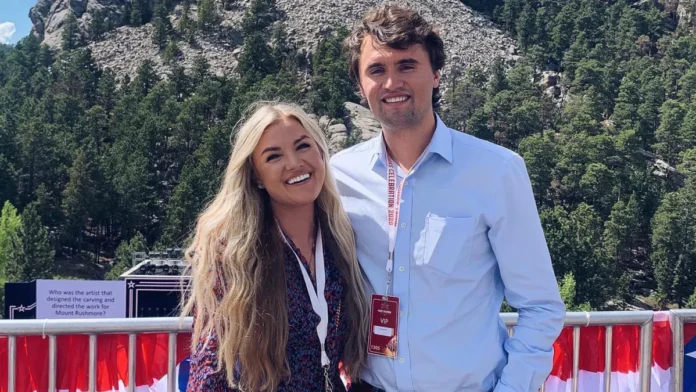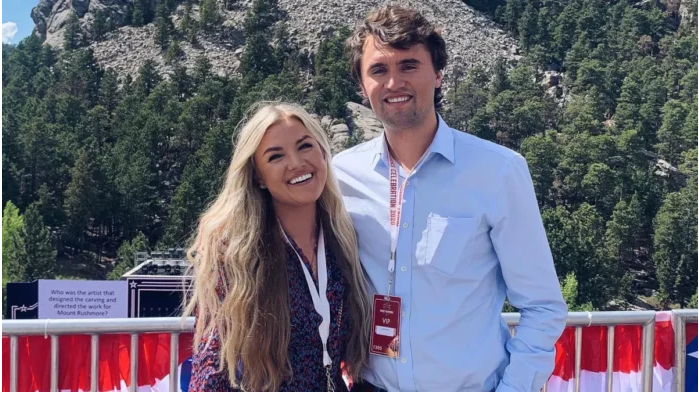When Social Media Gets You Fired: A Cautionary Tale for the Digital Age
Across the United States, a growing number of individuals are losing their jobs — not because of poor performance, budget cuts, or office politics — but because of something far more personal and public: their social media posts.
What you say online, even in your own time and on your personal accounts, can now follow you into the workplace. And in the wake of recent events involving the death of conservative commentator Charlie Kirk, this new reality has come into sharper focus. The digital world doesn’t just reflect your thoughts — it can redefine your career.

The Charlie Kirk Incident: A Flashpoint Moment
Charlie Kirk, founder of the conservative organization Turning Point USA, had long been a lightning rod in political discourse. Known for his polarizing views and outspoken presence, Kirk commanded a large following — and just as many critics.
When Kirk tragically passed away during a university appearance earlier this year, an unusual moment of bipartisan unity followed. Prominent political figures from across the spectrum, including former Presidents Barack Obama and Donald Trump, issued statements honoring his life and influence. It was, for a moment, a rare display of mutual respect.
But not everyone online showed restraint or compassion. Some individuals took to platforms like X (formerly Twitter), Facebook, and Instagram to express opinions ranging from critical commentary to outright celebration of Kirk’s passing. These posts, once viewed by only a few followers, quickly went viral — and the consequences were swift.
A Website That Turned Posts Into Consequences
Not long after the news broke, a controversial website titled “Expose Charlie’s Critics” emerged. The site publicly listed names, social media accounts, and even places of employment of individuals who had posted negative or mocking comments in response to Kirk’s death. What followed was a wave of employers reviewing — and in many cases, terminating — employees based on their online behavior.
What began as a public reaction to a political figure’s death quickly turned into a nationwide debate about free speech, accountability, and the blurred line between personal opinion and professional image.
Real People, Real Job Losses
Across a wide range of industries — including education, media, sports, finance, and entertainment — people began losing their jobs.
One of the most high-profile examples is Matthew Dowd, a seasoned political analyst known for his commentary on cable news. During a broadcast shortly after Kirk’s passing, Dowd referred to him as a “divisive figure,” and offered context about Kirk’s role in modern political discourse. Though Dowd didn’t mock or celebrate the death, the network — MSNBC — deemed his comments “insensitive” and swiftly cut ties with him.
At 64, Dowd’s experience highlights an important truth for older Americans: even decades of experience and a strong reputation may not protect you from the repercussions of a controversial opinion expressed in the wrong setting.
Media and Entertainment Respond
The entertainment industry wasn’t spared, either. DC Comics, one of the most influential names in pop culture, canceled a planned graphic novel after writer Gretchen Felker-Martin posted what some viewed as celebratory remarks about Kirk’s death. DC stated that it holds all contributors to high standards, and that commentary appearing to promote or endorse hostility is unacceptable — even on personal accounts.
For many creatives and freelancers, who rely on public visibility and personal branding to secure work, this new climate presents an added layer of risk.
Universities and Sports Teams Join the Crackdown
The reaction was not limited to high-profile individuals. In Tennessee, a university staff member was terminated after making a critical post about Kirk’s legacy. The university president called her comments “damaging to the institution’s values,” and confirmed that her employment was terminated after a formal review.
Similarly, the Carolina Panthers dismissed a staff member from their communications team after they shared controversial thoughts online. The team emphasized their commitment to a respectful culture and professional behavior.
Even financial firms entered the fray. Nasdaq, one of the world’s most prominent financial institutions, confirmed that a junior employee was dismissed for violating its social media policy. The company emphasized that they maintain “zero tolerance for posts perceived to condone hostility.”
What’s at Stake: Free Speech vs. Professional Standards
These events have reignited a national conversation — especially among older Americans — about the boundaries between personal expression and professional responsibility.
For many seniors, the idea that a personal opinion could cost someone their livelihood feels fundamentally un-American. For decades, civil discourse and open disagreement were cornerstones of a healthy democracy. But the digital age has changed everything.
What once would’ve been a private conversation with friends over dinner is now a permanent digital record, searchable and shareable by anyone — including your boss, your clients, and your future employers.
The Reality for Older Americans
For those over 60, this shift can feel particularly jarring. You may remember a time when sharing a controversial opinion didn’t threaten your job, your reputation, or your family’s livelihood. But now, even a comment made on a personal device, from your home, outside work hours, can be interpreted as representing the organization you work for.
And let’s be honest — digital platforms weren’t designed with older generations in mind. It’s easy to misunderstand privacy settings, post impulsively, or misread the tone of online conversation. A sarcastic comment, a shared meme, or a late-night opinion might feel harmless in the moment, but can become a career-altering decision by morning.
How to Protect Yourself Online
While the landscape may feel unfamiliar, there are steps older Americans can take to safeguard their digital presence:
-
Understand Your Employer’s Social Media Policy
Every company has different expectations. Some are lenient; others enforce strict conduct codes. Read and understand your organization’s guidelines — they often apply even outside of work. -
Think Before You Post
Ask yourself: Would I be comfortable if this post appeared on the front page of a newspaper with my name and employer attached? If the answer is no, don’t post it. -
Adjust Your Privacy Settings
While no setting is foolproof, making your account private can reduce visibility. But remember: nothing online is truly private — screenshots and sharing make everything public eventually. -
Avoid Posting in Emotional Moments
Reacting to breaking news or controversial events while emotions are high is risky. Give yourself time to reflect before engaging. -
Separate Professional and Personal Profiles
Some people maintain two online personas — one for professional networking (like LinkedIn) and another for personal use. Even so, be cautious: nothing is fully anonymous.
Final Thoughts: A New Era of Accountability — or Overreach?
Supporters of the recent firings argue that organizations have a right to protect their image and values, and that employees must be held accountable for public behavior. Critics, however, see this as a dangerous extension of “cancel culture,” where people are punished not for illegal acts or poor job performance, but for holding controversial or unpopular opinions.
Regardless of your stance, one thing is undeniable: the rules of the game have changed.
We live in an era where words have weight far beyond the screen, and where digital footprints can shape — or shatter — our careers. For older Americans especially, adapting to this reality is not just helpful, it’s necessary.
In the end, wisdom in the digital age isn’t just knowing what to say — it’s knowing when, where, and how to say it.



